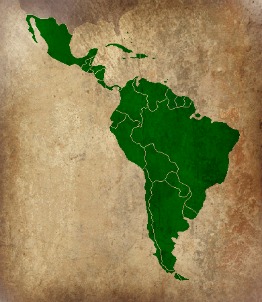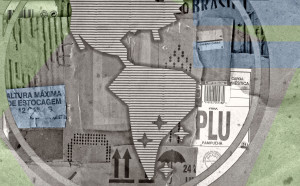Latin American Development Politics

 By Dr. Henry Flores, NewsTaco
By Dr. Henry Flores, NewsTaco
One would think that development politics in Latin America has changed dramatically for the better since the embarrassing days of the 1970s and 80s when military dictatorships, concentration camps and “escuadrones de muerte” reigned freely from the Rio Bravo hasta Tierra del Fuego. But, they have not. In fact, what is happening across the richest parts of Latin America is almost as bad except no estamos hablando de la muerte de personas but of the environment. Where the aforementioned decades featured the death of thousands of individuals who disagreed politically with various political regimes the 21st Century has witnessed an increase in environmental degradation done in search of the all mighty dollar in South America.
Although I had heard complaints from friends in Argentina of how the current president, Cristina Fernandez de Kirchner, was “selling off” the land to large agri-business combines like Monsanto I always took this as the normal complaining of opponents of those in power. Argentines always complain about the perceived corruption of public officials so I didn’t think much about it until I ran into a fellow traveller in Ezeiza International Airport (Buenos Aires) one day while waiting for my baggage to be unloaded.
I struck up a conversation with my fellow traveller, he was obviously an American corporate employee (had a golf shirt with logo), and asked him if he was there on business or pleasure. He said that he was in country for a few days to inspect grain-carrying ships taking soy and other grains from Argentina to the United States. He offered that his principle job was to insure that “no organic material” was in the ship storage containers or it would ruin the genetically modified grains. ¡Por favor! Organic materials ruining genetically modified grains?
This didn’t bother me too much as I ‘ve seen reports of this happening all over the world. Generally the “Green Revolution” that Samir Amin worried about in the 1960s has happened. The world has developed a system of growing “Franken foods,” some call them “super foods” because the world has too many people and we simply have a great deal of difficulty growing enough food to sustain our populations. So, we grow genetically modified foods (GMO) to insure that organic materials such as bugs or other types of organisms will not ruin them thereby yielding greater and lasting bounty?
One would argue that this is another case of Argentina misbehaving along with the continuing struggle with the IMF and US courts over their debt, the unexplainable national inflation numbers, the president’s attempt to dismantle a media giant, and its ongoing war of words with Great Britain over Las Islas Malvinas. A deeper look at the agribusiness situation in Argentina, together with all the issues just mentioned reveals a deeper problem. Fundamentally, Argentina as are many countries attempting to aspire to “First World” status, are still caught in the developmental model created and maintained during the 20th Century when the United States became the economic and political center of the world with increasingly expanding “rings of dependency” populated by other countries. The farther from the center the more dependent and weak the country was and is.
Argentina must grow genetically modified crops because that is what multinational corporations want and sell in those countries having large consumer markets such as the United States, the Eurozone and the Far East, principally China. These areas are the population centers and have the largest percentage of people who can afford to buy these types of products. Just go down to your local supermarket and you can see what I am talking about.
One of the diseconomies associated or resulting from the growing of genetically modified crops are the environmental disasters associated with such practices. For instance, the European Union has already determined that GMO foods are not healthy for human consumption and have banned some from their markets. In Argentina, the proliferation of these crops has led to the demise of the ranch system that produced some of the greatest grass-fed beef in the world. The pesticides and chemicals used in producing GMO grains are causing desertification and pollution in ground water. Those grains not sold on the world market are consumed by “feeder lot” cattle that, in turn, leads to bad beef served in restaurants and the subsequent obesity of those who eat it.
I could go on and on but the fundamental problem is that Argentina’s public health, economy and environment are being badly eroded because of the developmental relationship this country has with the first world. If Argentina is to get past its struggles this relationship needs to change. Change will not just benefit Argentina and the other Latin American countries but the world as well.

